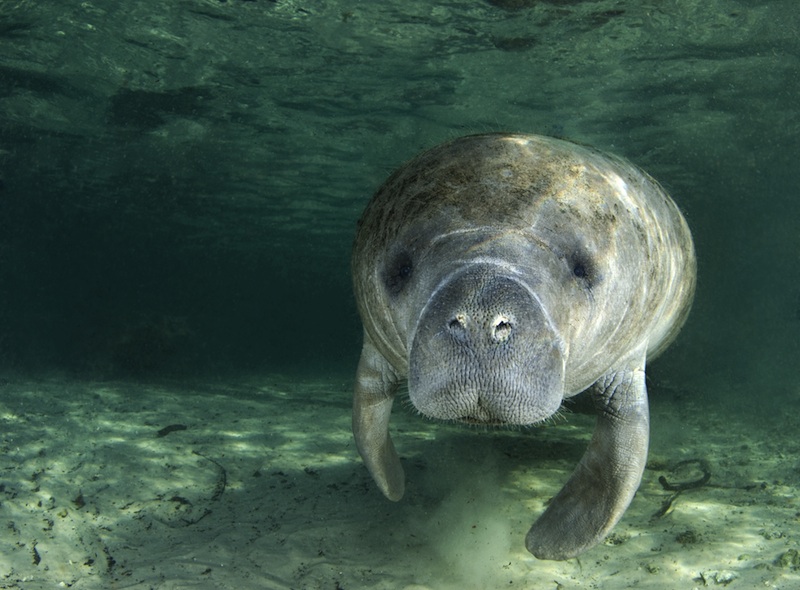Manatee Mystery: Why Can't They Avoid Speedboats?

Manatees have sensitive hearing, but that doesn't necessarily keep them safe from passing boat propellers, a new study finds.
These docile sea cows have no natural predators in their coastal U.S. habitat, but fast-moving speedboats and other watercraft are a danger. Collisions with boat hulls or propellers can severely wound or kill a manatee.
Researchers have long questioned why manatees can't seem to effectively avoid boats. The animals' vision is bad, so researchers from Mote Marine Laboratory and Aquarium turned to the question of how well manatees hear.
Mote researcher Joe Gaspard and colleagues tested the auditory abilities of two aquarium manatees, Buffett and Hugh, both of which are trained to participate in behavioral research. The researchers had the manatees swim to a "listening station" underwater and then had them touch a yellow paddle when they heard a sound. A correct response earned the manatees a reward of fruit or veggies.
The researchers found that the manatees could hear frequencies between 8 kilohertz and 32 kilohertz very well. (Humans have a hearing range of about 20 hertz to 20 kilohertz). Buffett the manatee could even hear sounds far above the range of human ears, detecting frequences as high as 90.5 kilohertz.
"Buffett did the task but refused to continue after the first round at that frequency, so we think it was aversive or annoying," Gaspard said in a statement.
The next step was to find out whether this sensitive manatee hearing might translate into a noisy ocean. By playing tones ranging from 4 kilohertz to 32 kilohertz against background noise, the researchers found that manatees are quite capable of hearing motorboat-level frequencies against background noise. Other factors may thus be at play in explaining why the manatees can't stay away from speedboats.
Sign up for the Live Science daily newsletter now
Get the world’s most fascinating discoveries delivered straight to your inbox.
"Manatees might be less aware of these sounds when they are sleeping, eating or performing other activities related to their daily lives that require their full attention," Gaspard said. "There are also a multitude of environmental factors that come into play. Understanding how animals use their various senses is a complex process. Could their sense of touch also be playing a role here? We are working on that question now."
Gaspard and his colleagues reported their findings Thursday (April 12) in the Journal of Experimental Biology.
You can follow LiveScience senior writer Stephanie Pappas on Twitter @sipappas. Follow LiveScience for the latest in science news and discoveries on Twitter @livescience and on Facebook.

Stephanie Pappas is a contributing writer for Live Science, covering topics ranging from geoscience to archaeology to the human brain and behavior. She was previously a senior writer for Live Science but is now a freelancer based in Denver, Colorado, and regularly contributes to Scientific American and The Monitor, the monthly magazine of the American Psychological Association. Stephanie received a bachelor's degree in psychology from the University of South Carolina and a graduate certificate in science communication from the University of California, Santa Cruz.









